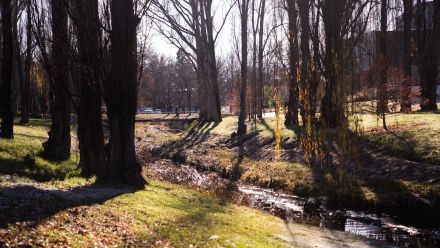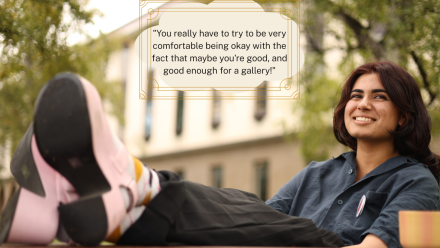Kangaroos eating reptiles out of house and home
Large numbers of kangaroos are threatening an endangered species and are eating some lizards out of house and home, new research has found.
Australian National University (ANU) researcher Brett Howland has found large kangaroo numbers destroy the grassland habitats of reptiles.
"When there are too many kangaroos, they over-graze grasslands until they are like a lawn, which leaves lizards with no shelter," said Mr Howland, from the Fenner School of Environment and Society.
"Just because kangaroos are native doesn't mean they don't do damage. We have to regulate their numbers if we want to retain a variety of reptiles," he said.
Mr Howland studied lizard populations, which provide a good yardstick for the health of grasslands. Lizards depend on grass cover for both food and shelter, they are an important part of food webs, they are food for birds and small mammals, and provide pest control by eating insects.
"Grass over 20 centimetres tall housed the greatest number of reptiles," Mr Howland said.
"The current number of kangaroos in some of Canberra's parklands, over 300 per square kilometre, removes all tall grass. We should be controlling kangaroo numbers to at most 100 kangaroos per square kilometre in grasslands on average, and even less in treed areas."
The study found that in areas where the grass was higher than 20 centimetres there were more than twice as many reptiles, and nearly three times as many species of reptile, than when grass was short.
"Many reptiles are under threat - species such as the striped legless lizard are on the vulnerable list. They face possible extinction in the near future," Mr Howland said.
"However, there are millions of eastern grey kangaroos in Australia, making them one of the most populous large mammals in the world."
Without threats from Indigenous hunters and native predators such as the dingo, kangaroo numbers have skyrocketed, Mr Howland said.
"We are still coming to grips with managing biodiversity," he said.
"You can't lock a reserve up and throw away the key, that doesn't work."
The research is published in PLOS ONE.
For Journalists
- MEDIA TEAM CONTACTPhil Dooley+61 2 6125 7979


